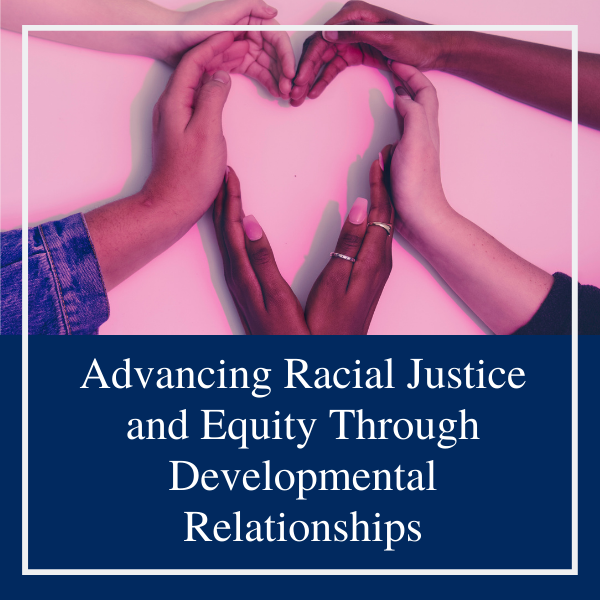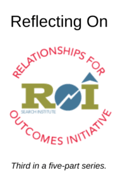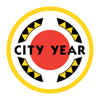Subscribe for Updates

By Eugene C. Roehlkepartain, Ph.D., Senior Scholar

Diversity, equity, inclusion (DEI). Racial equity. Racial justice. Each term has its own emphasis and meaning. And together, along with many others, they point to a broad and deep current social challenge facing not only the United States, but the world. How do we treat one another and use our power to heal or hurt across differences? In particular, how does society treat those who have been oppressed and those vulnerable, knowing that what we do reflects directly on our society’s strength, values, and character?
Judging from events of the past year, we aren’t doing well. But that isn’t a surprise to dedicated leaders and activists who have kept the drumbeat going, even when no one seemed to be listening. Nor is it a surprise to those strapped by the weight of compounding, day-to-day injustices.
Justice Grounded in Relationships
The uprising for racial justice that was sparked by the killing of George Floyd by Minneapolis police in May 2020 came just as Search Institute’s three-year Relationships for Outcomes Initiative (ROI) was entering its final months. Working with five partners (listed in the box below), this major project developed and tested tools and strategies to support youth-serving organizations in becoming more intentional and inclusive in cultivating developmental relationships. From its inception, this project sought to address equity through the partners who were selected, a focus on inclusion, and an explicit priority on strengthening developmental relationships with and among young people in marginalized communities. Through intensive, collaborative, and creative work, our partners found that a focus on cultivating developmental relationships became a core element of their strategies for advancing racial equity and justice, even as we recognize there is much more to learn.
Engaging with Self and Each Other Authentically
Though the Developmental Relationships Framework was conceptualized, developed, and tested to focus on relationships with young people, our ROI partners found it to be important also to use the framework as an informal reflection and dialogue tool among staff. This kind of self-reflection and mutual relationship- and trust-building, they found, is essential to engaging effectively in relationship building with youth. (This will be the focus of the next blog and video.)
Seeing Each Young Person More Fully
A key way the ROI partners found an intentional focus on developmental relationships enhances their commitment to equity and justice is that the framework encourages adults to see—even insists that adults see—each young person as a whole person. We each have the opportunity and the responsibility to engage with young people in multi-dimensional relationships of caring, challenge, support, power-sharing, and expanding opportunities that are the roots of their success, resilience, and thriving.
As we come to know young people more fully, we also see them in the larger context of their lives. “When we utilize developmental relationships in our programming, we know that each of our students is getting an individualized approach in their support system,” says Elizabeth Guzman-Arroyo, in our new video, We Meet Them Where They Are. “[This] takes into consideration outside barriers that may not be visible if you’re having a superficial conversation or interaction with students.”
Connecting with Every Young Person More Meaningfully
Once the ROI partners began to know each young person more fully, they saw the need to be more intentional in connecting every young person in a web of meaningful relationships within and beyond their own organization. “It’s not enough to be intentional with just a few kids,” said Lauren Geraghty of Communities in Schools San Antonio. “And it’s not enough to be inclusive, but not intentional about how you serve all those kids.”
The challenge and opportunity, then, is to expand the reserve of relationships and social capital that can support and sustain young people across the community as they grow, face new challenges, and use their gifts to shape their future and open up new possibilities for future generations. These efforts begin transforming the culture and systems so that all young people who otherwise would be ignored or marginalized become fully included and engaged in their families, the private sector, the civic life of their communities and nation.
Accompanying Young People as Allies and Advocates
If a focus on developmental relationships stops with the first three strategies, it is an incomplete response. It may, in the words of youth development pioneer Karen Pittman, help some young people “beat the odds.” But it doesn’t “change the odds” by dismantling cultures and systems that perpetuate white privilege, racism, bias, and discrimination or rebuilding just, empowering systems for all children, youth, and families.
Each partner in ROI expressed frustration that, within the bounds of the time-limited project, we could not collectively push further in innovating practical strategies that linked developmental relationships to this kind of systemic and cultural change work. However, one partner, Generation Citizen, foreshadowed the potential of pairing the development of the skills of organizing for civic and political action through action civics with the power of accompanying young people as allies and advocates with intentional developmental relationships, working together across generations for meaningful and lasting social change.
Strong relationships and social action are deeply connected. Soon after his death in July 2020, I listened to the rebroadcast of an interview with civil rights icon Representative John Lewis. He recalled the source of his courage when nonviolently resisting the police beatings during the Civil Rights Movement. Without the strong base of intentional community, he said, the “individual acts” of bravery wouldn’t have been possible. “We did become a circle of trust, a band of brothers and sisters,” he said. “So, it didn’t matter whether we’re Black or white. It didn’t matter whether you came from the North, to the South, or whether you’re a Northerner or Southerner. We were one.”
“Rehumanizing” Through Relationships
Finally, beyond the scope of ROI and the scope of youth development, I wonder if deliberate efforts to build developmental relationships across differences can, in the long term, play a role in addressing the deep and troubling fragmentation of this and other societies. Among the most disturbing interpretations of the harsh rhetoric that particularly dominates social media and right-wing extremists, QAnon, and other white supremacists at this time is through scholars who study the rhetoric of dehumanization.
Through history, they demonstrate, those who seek to harm or dominate another group begin by “conceiving of those whom we wish to harm as mere animals,” writes David Livingston Smith, a self-deception which “makes it permissible to do violence to them.” In other words, it suppresses the human inhibition not to harm another human being. Instead, it re-conceives them “as dangerous animals [and] renders such violence obligatory.”1
Among the greatest, immediate threats to the ongoing quest for “a more perfect union” and greater equity and social justice are the current mutually reinforcing threats of social media driven by algorithms that spread disinformation that drive people further apart and the efforts in more than 40 state legislatures to roll back voting rights (without any evidence of more than incidental irregularities in voting in 2020). Tightening voting rights would, of course, disproportionately affect Black, Indigenous and other People of Color.
Could then, building developmental relationships across differences “rehumanize” connections across divisions? There is considerable evidence that one of the reasons that same-sex marriage became accepted by a majority of Americans when it became legal in 2013 was that an increasing number of people said they knew someone personally who was homosexual. And must that kind of social change in terms of racial justic become not just a future possibility, but an urgent call to action if we are to rebuild a democratic, pluralistic society in the wake of the current wave of domestic terrorism and hate crime?
What might be possible if people across differences would begin really to internalize and implement the actions within the Developmental Relationships Framework across differences in race/ethnicity, socio-economic status, immigrant status, sexual orientation, gender identity, abilities, religion, and more that have been subject to dehumanizing rhetoric and action in recent years and decades? Those actions include listen, believe in me, expect my best, advocate, respect me, let me lead, and inspire me. It’s hard to imagine that, over time, mutual trust would not develop. It’s hard to imagine that relationships built on those actions wouldn’t, at some point, undermine the rhetoric and vitriol that dehumanizes, replacing it with something more like what John Lewis described when he said, “We were one.”
Idealistic? Perhaps.
Worth striving toward? I hope. . . . And not just in the distant future.
Published Blogs in This Series
- When Relationships Get Practical: The Value of the Developmental Relationships Framework
- Talking Past Each Other: The Challenge of Communicating About Developmental Relationships
More insights from the Relationships for Outcomes Initiative
Note
1 Smith, D. L. (2016). Paradoxes of dehumanization. Social Theory and Practice, 416-443. doi:10.5840/soctheorpract201642222 (p. 426).
ROI Partners
These five youth-serving organizations partnered with Search Institute in Relationships for Outcomes (ROI). Each partner included a local “design site” where we collaboratively listened to youth, staff, and parents, prototyped and tested tools, gathered feedback, and collected data.
 |
 |
 |
 |
 |
|
Camp Fire Columbia Council , Portland, OR |
Communities in Schools in San Antonio Program at South San Antonio High School, TX |
Office in Boston, MA |
National Center for Families Learning Toberman Neighborhood Center, San Pedro, CA |
Search Institute
3001 Broadway Street NE #310
Minneapolis, MN 55413
© 2021 Search Institute |
Search Institute is a 501(c)(3) nonprofit charitable corporation. All contributions are tax deductible.
